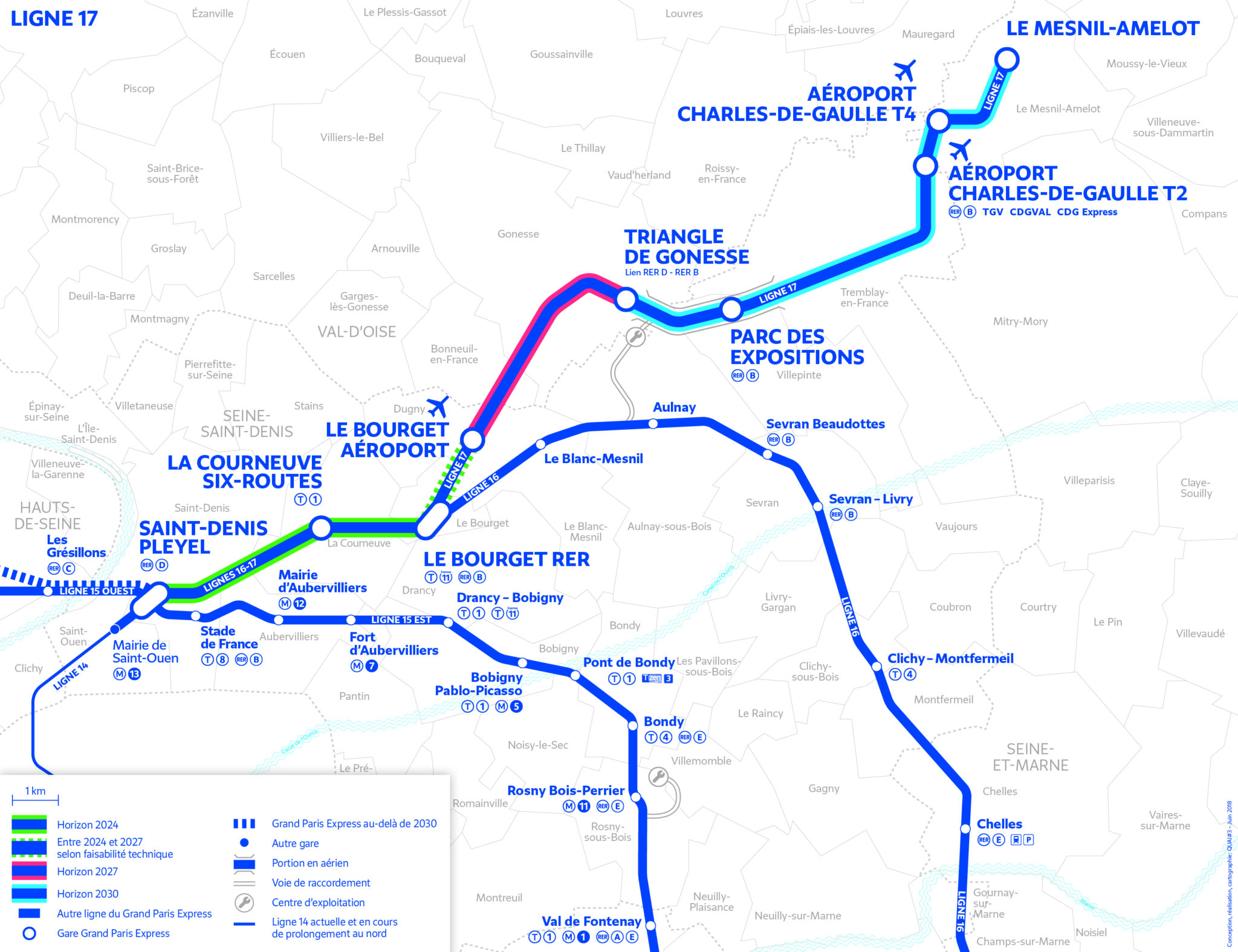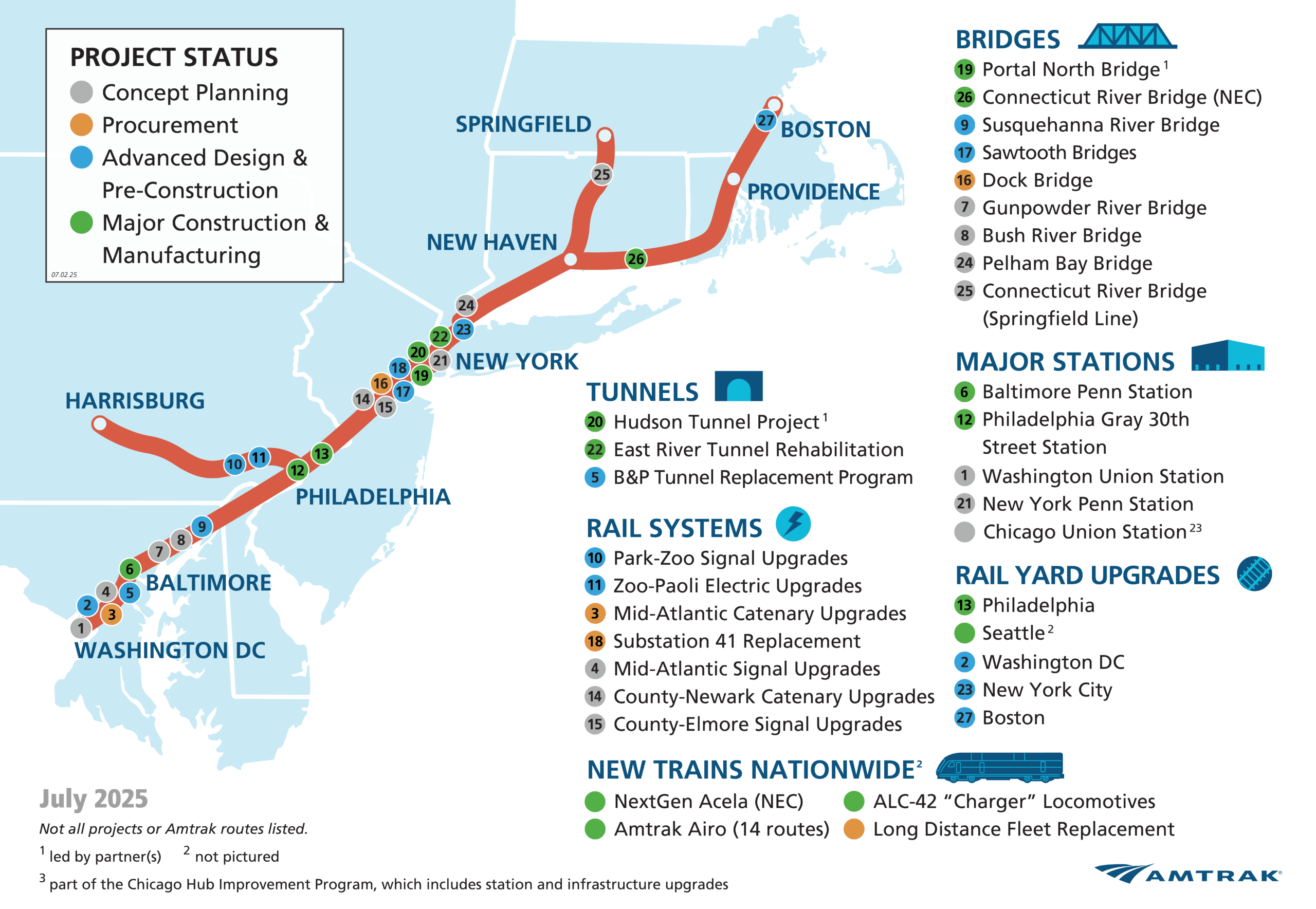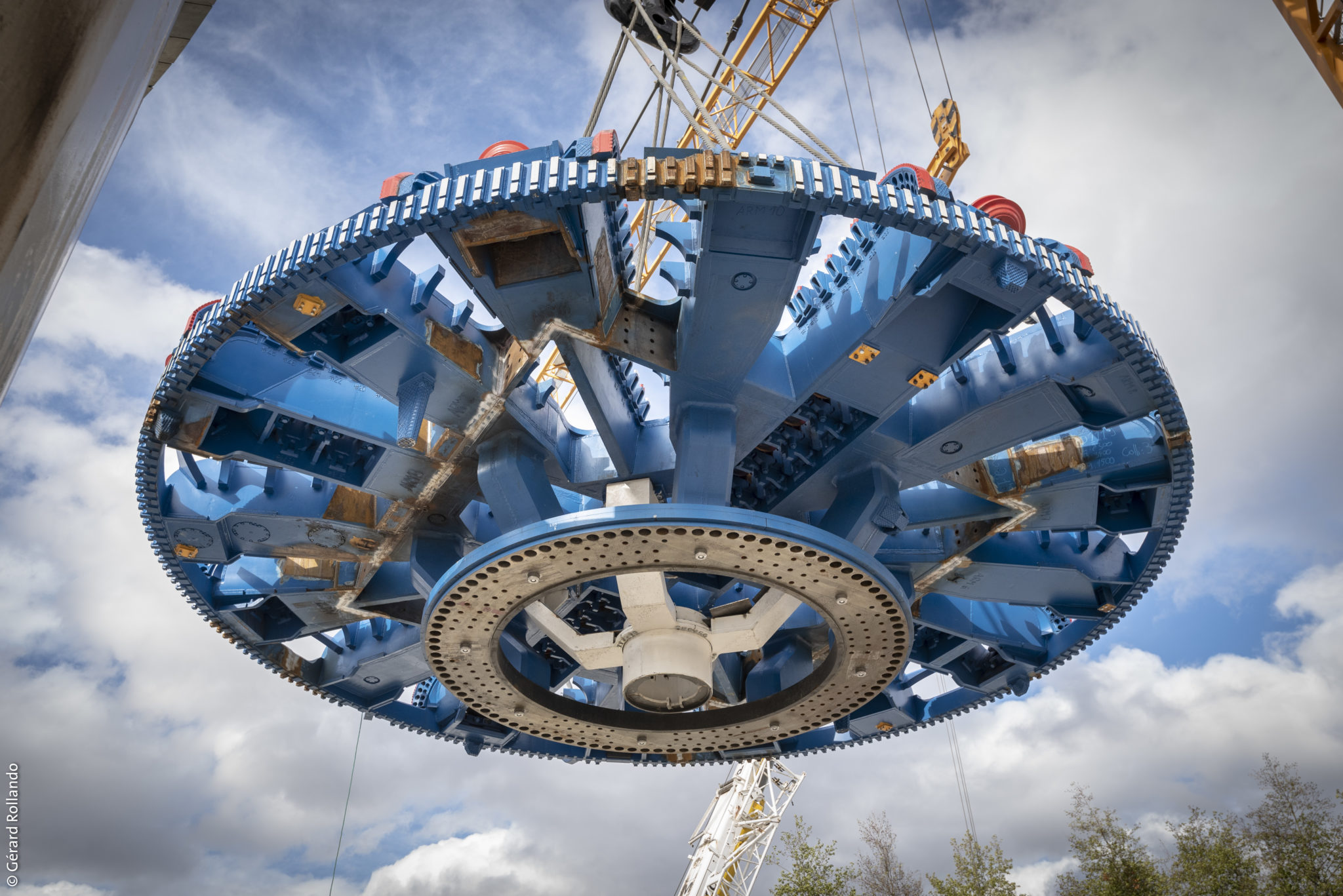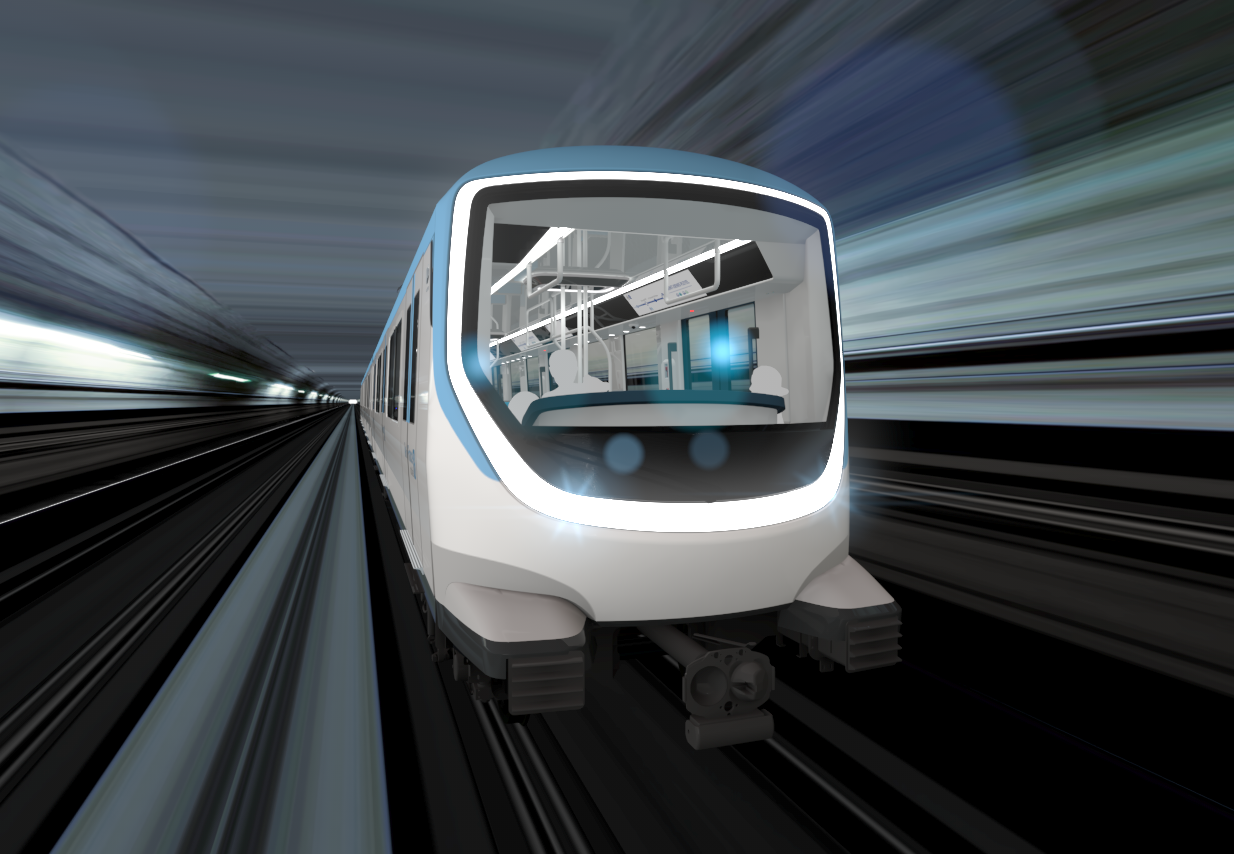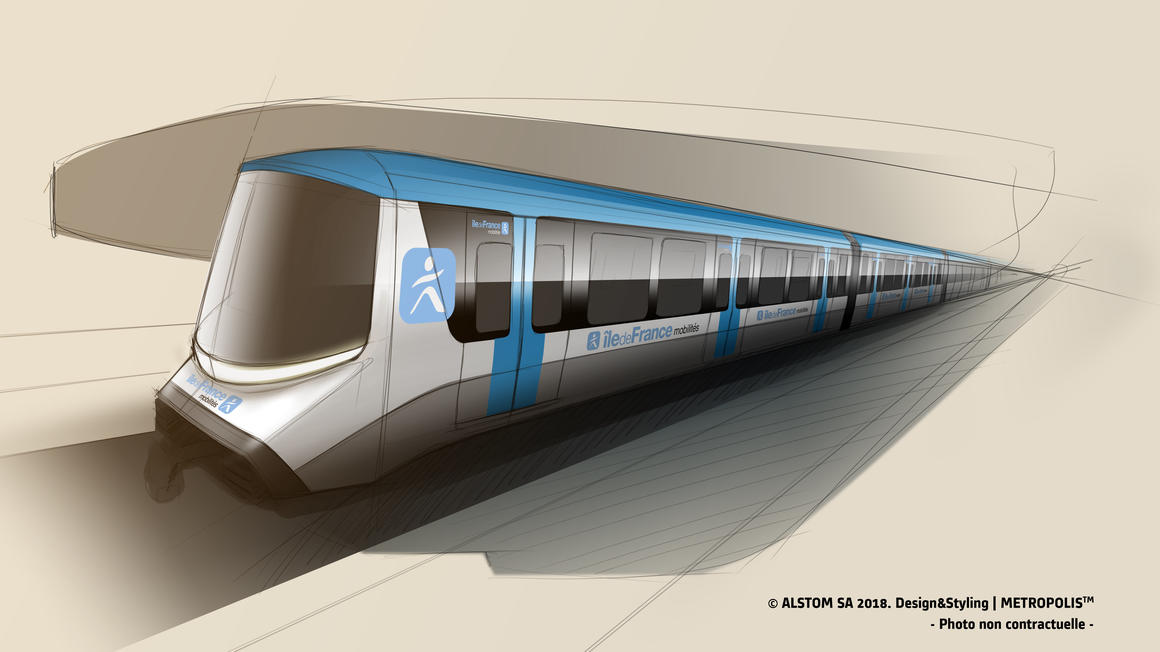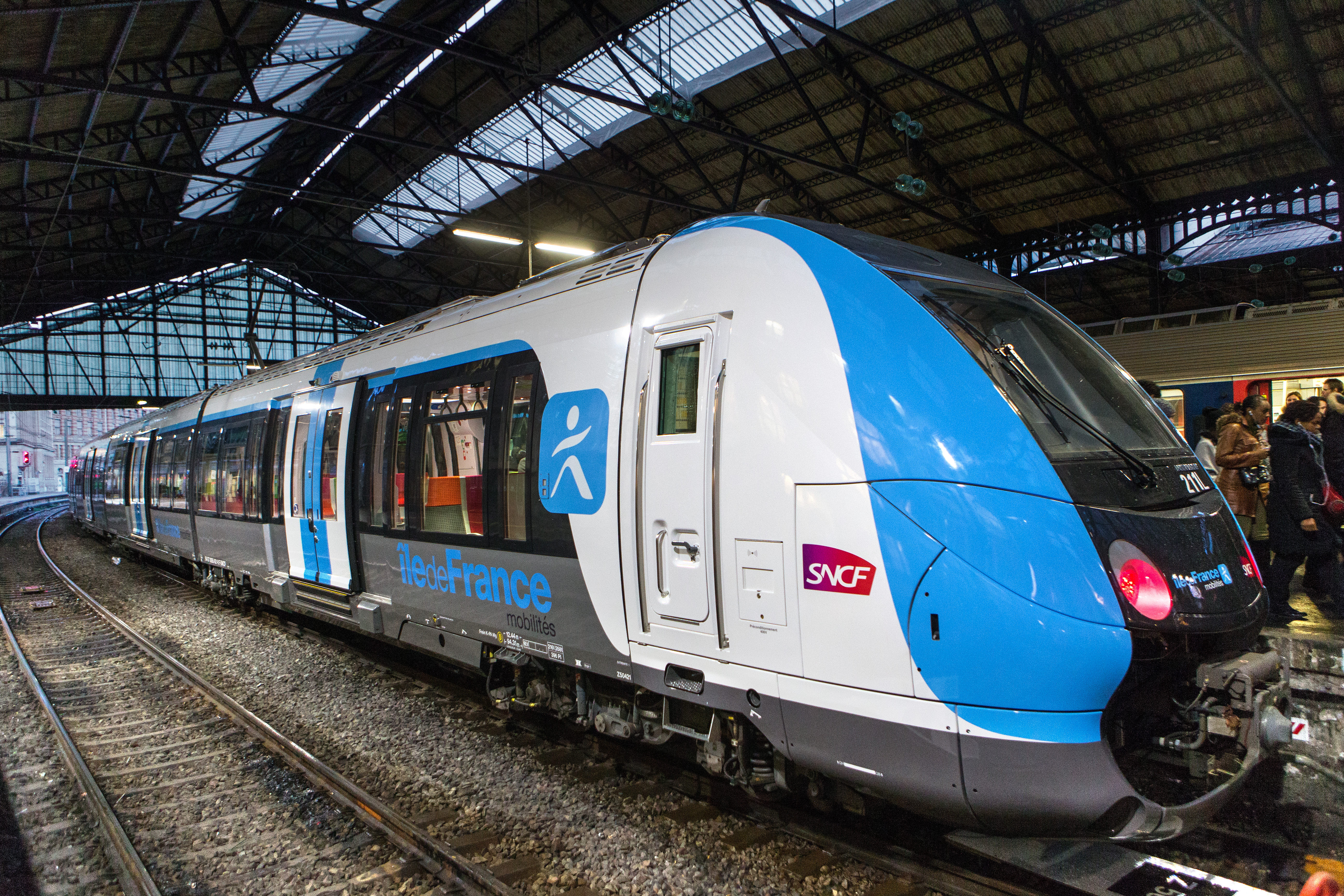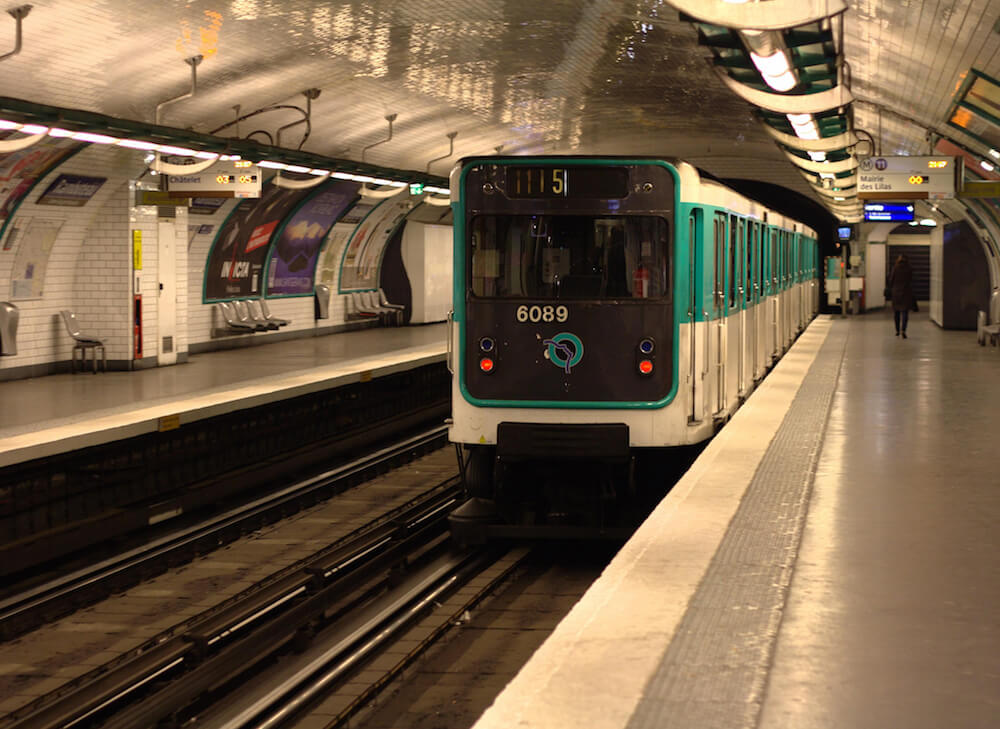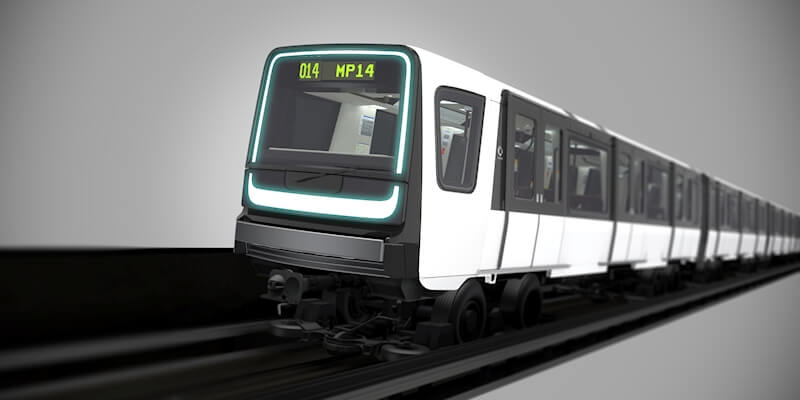The new Grand Paris metro lines, together the Grand Paris Express, have created an infrastructure project of unprecedented magnitude: 200km of new track, of which 90 percent is under ground, with four new lines, one extension, 68 new stations, fully automated rolling stock, all for a 35 billion euro investment. It is the largest infrastructure and development project in Europe and the largest public transport project in Île-de-France since the construction of the RER.
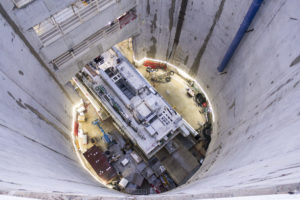
By: Société du Grand Paris
The Grand Paris Express is the backbone of the transformation of Greater Paris. This network of lines, which will be interconnected and allow passengers to bypass unnecessary areas, will improve the lives of Parisians, delivering new mobility, reducing travel times and giving rise to new neighbourhoods.
The Grand Paris Express will connect major business centres and also link up under-served areas. A real lever of economic development, when the new metro becomes operational, it will generate 100 billion euros in additional GDP over time – or four billion euros per year for 25 years.
The Grand Paris Express is also a source of opportunity in terms of employment, integration and training. Every year, the Grand Paris Express will sustain 15,000 jobs. By 2030 the network will have created at least 115,000 jobs.
The intention behind the Grand Paris Express is not just to build an essential transport project to meet the need for travel, but also to deliver a new vision of land development. The Grand Paris Express is a mobility solution that will rebuild, redefine and intensify the city, while limiting urban sprawl.
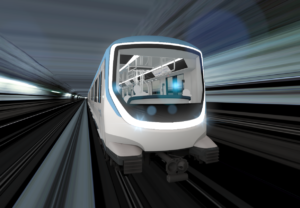
The Grand Paris Express Is Ramping Up
Work has intensified on the entire Grand Paris Express project in recent months. It has achieved important milestones over the past year. Three tunnel-boring machines are already in operation and 65 construction sites are in place for stations and service structures. In 2019 around 15 machines will dig the tunnels for the new metro. By 2020 this number will rise to 20.
Along Line 15 Sud all the stations between Pont-de-Sèvres and Noisy-Champs are undergoing civil works.
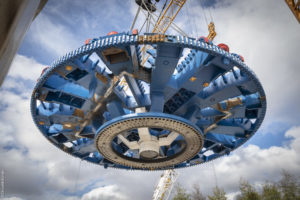
For Line 15 Ouest and Est the Société du Grand Paris will launch the procedure by which it will award works contracts under the design-build regime this year.
Work is progressing at a steady pace on Line 16. Regarding the section linking Saint-Denis Pleyel and Noisy-Champs, the first civil engineering contract was awarded to the Eiffage Génie Civil group in February 2018.
In October 2018 the second civil engineering contract was awarded to the consortium composed of the Italian company Salini Impregilo and the French company NGE.
Regarding Line 17, the Société du Grand Paris awarded the first civil engineering contract for the section between the Bourget RER and the Gonesse Triangle to a group led by Demathieu Bard.
For Line 18, the Société du Grand Paris has signed a land agreement with the public planning body Paris- Saclay to allow the transfer of the necessary land and is currently finalising the tenders for the order of the rolling stock and the infrastructure works for the line.
The Grand Paris Express – A Feat of Planning
The Société du Grand Paris decided to build not just underground stations but also stations that would contribute to creating the heritage of tomorrow’s city.
The Grand Paris Express will structure the development of the capital region. Station neighbourhoods have, for the most part, already begun their transformation to become the hubs of Greater Paris. This movement of transformation will be accompanied by the creation of innovative, high- quality public spaces, capable of offering each user optimal access and connection conditions. These public spaces will form the future squares of Greater Paris. The success of this train station / city combination depends on the Grand Paris Express.
The stations of the Grand Paris Express will be both places of transit and places where life happens. The forecourt of each station will facilitate the transition from one mode of transport to another (bus, metro, tramway, bicycle, cars…). 80 percent of Grand Paris Express stations will be connected to existing modes of transport (RER, metro, tram, Transilien).
Faster and More Connected Trains
The Société du Grand Paris and Île-de-France Mobilités have awarded the contract for the study and supply of rolling stock for the Lines 15, 16 and 17 to Alstom. These fully automated metros will run at an average speed of 55–65km/h, with a top speed of 110km/h. The lines will have a train every 2 to 3 minutes. Everything is done to transform the journey into a pleasant experience, with air-conditioning, access to very high-speed wifi, USB ports, video surveillance and real-time information systems. 2 to 3 million passengers will use the new network every day.
Maps for the Grand Paris Express
Line 15 East:
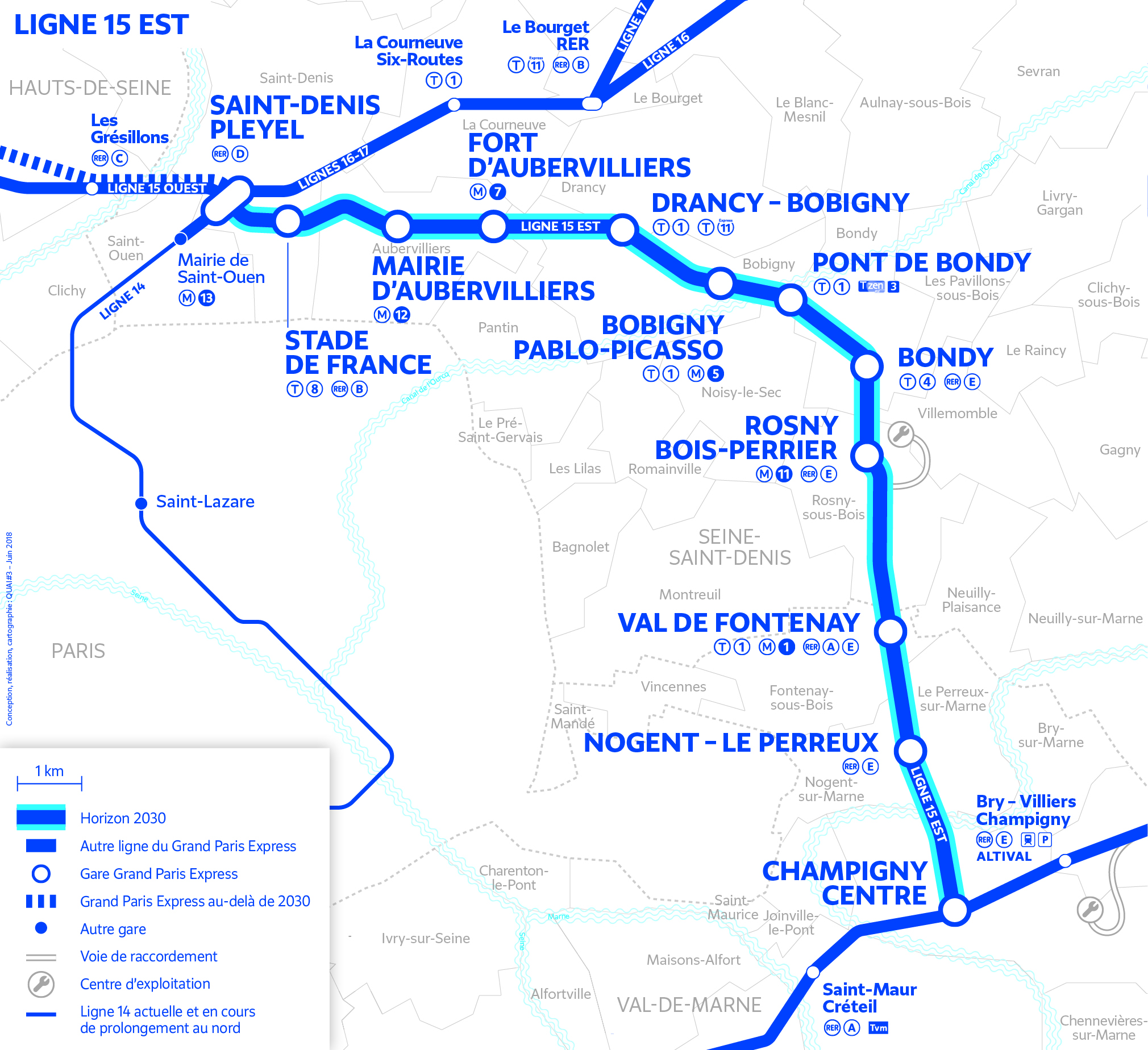
Line 15 West:
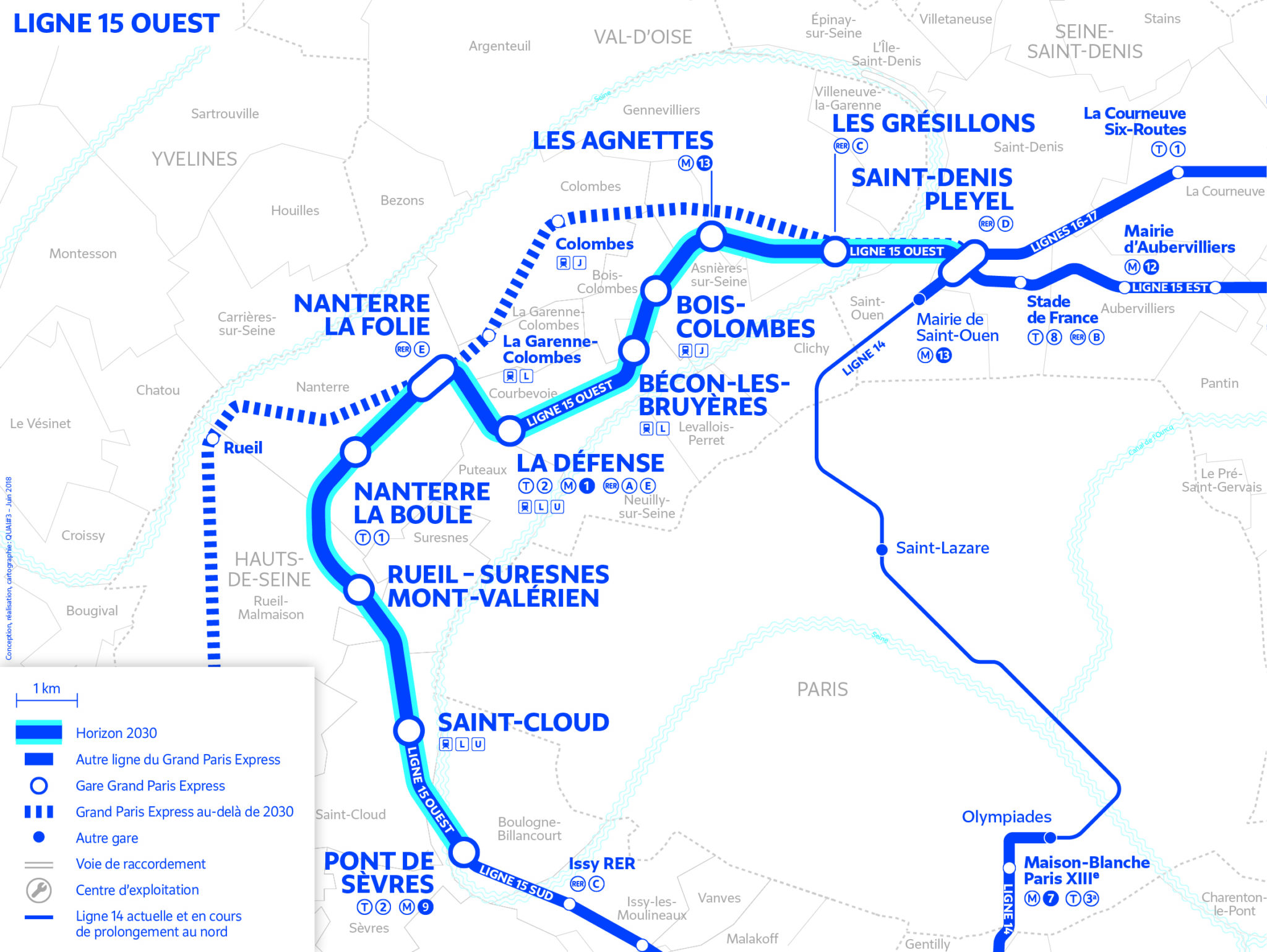
Line 15 South:
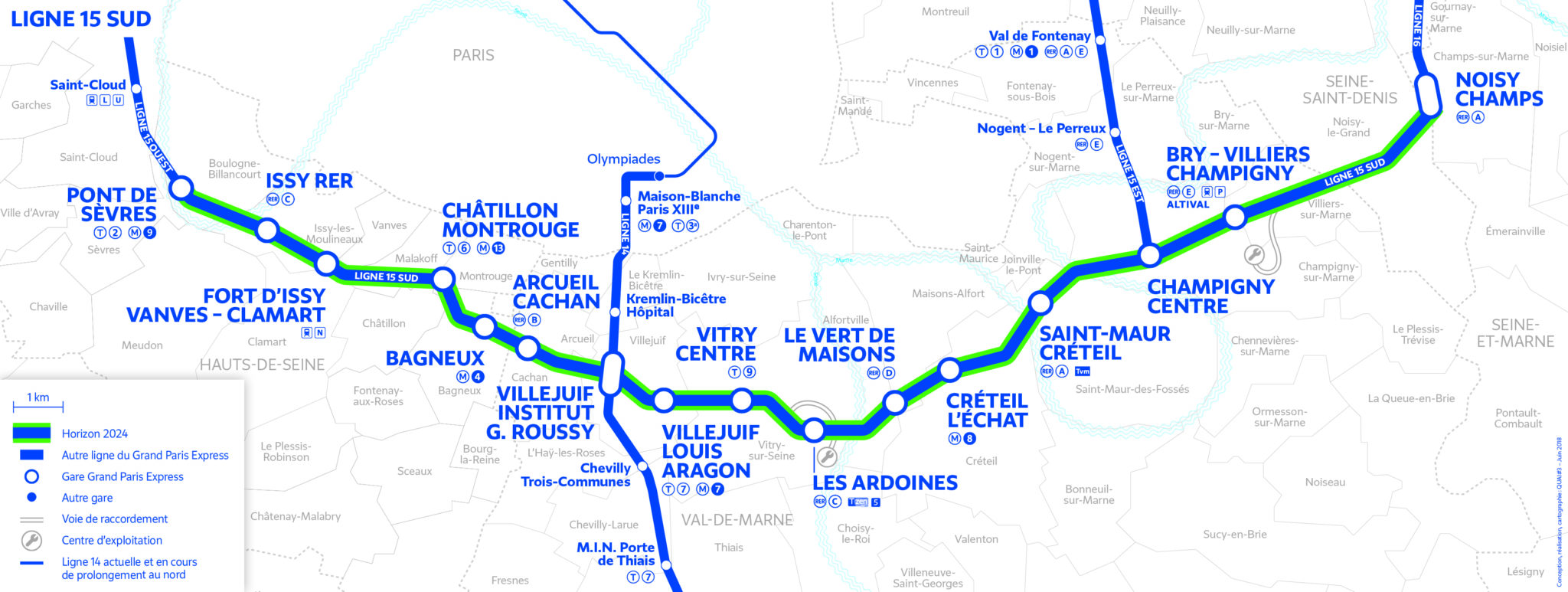
Line 16:
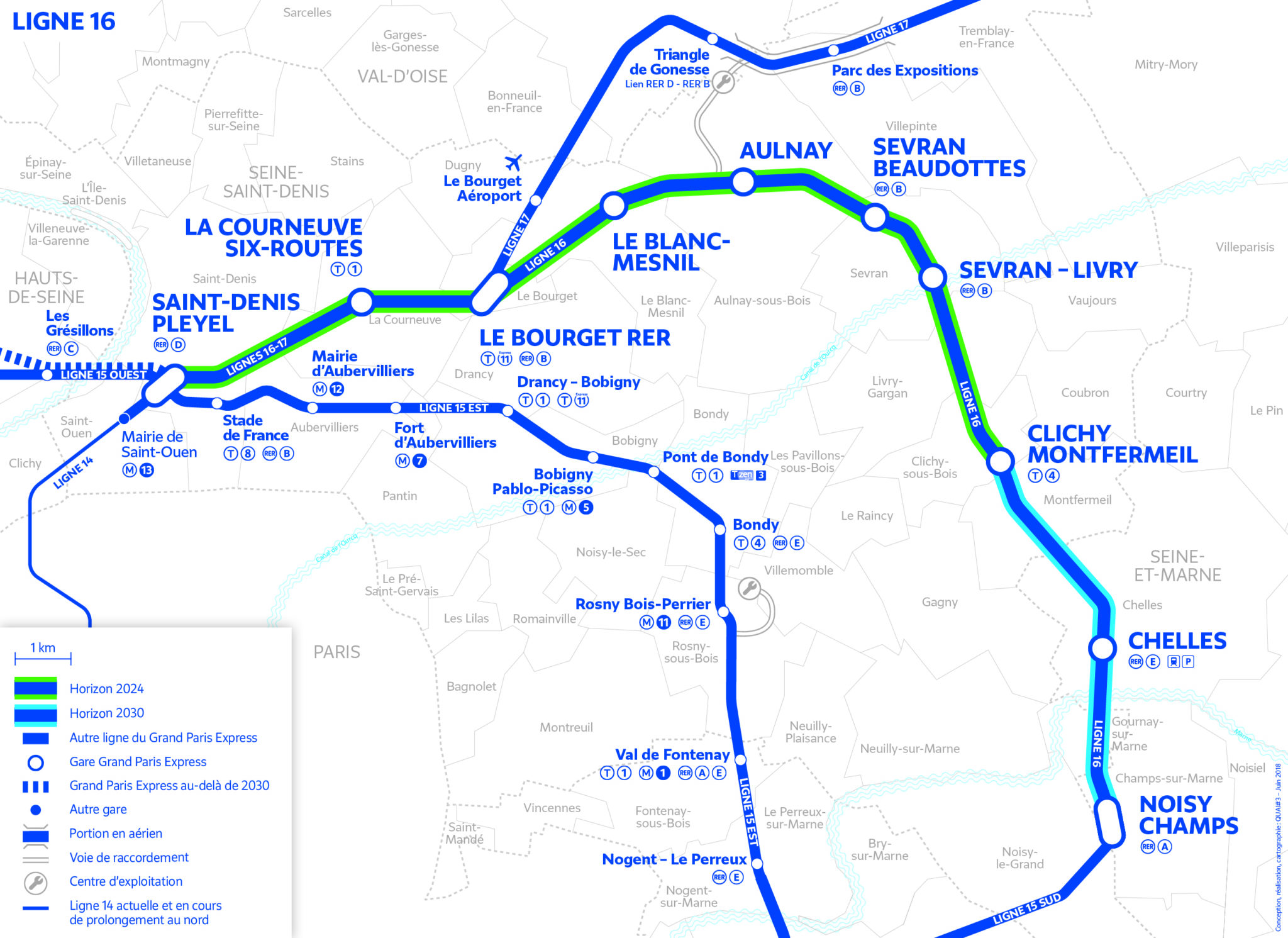
Line 17:
